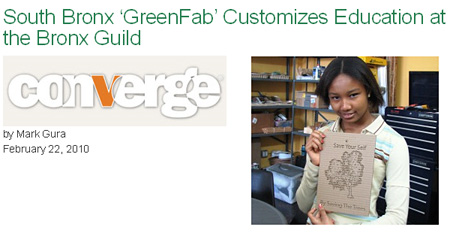“Ultimate Mashup” a Glimpse into the Future — from blog.programmableweb.com by Adam DuVander
“A new iPhone app is trying to take the fiction out of Science Fiction. Movies have long portrayed people in the future speaking commands to computers. Siri, based on $200M of research and development, is trying to make it so.”
Quote from “More on teaching with iPods: Preserving tradition and culture” — Atomic Learning
“Technology and tradition are not mutually exclusive (emphasis DSC). In reality, the former can greatly augment the preservation of the latter. As we like to say at Atomic Learning, embracing technology empowers us. “
From DSC:
And I would add to that, technology is not anti-relational — these two things are not mutually exclusive either. (Consider Facebook, MySpace, NING, and a myriad of technology-based means of communications.)
Tips & Tricks for Effective Lecturecasting — from ProfHacker.com by Ethan Watrall
Lecturecasting is all the rage these days. And whether you are lecturecasting specifically for a class (either online, face-to-face, or any combination thereof), or are putting your lectures out to the wider public on a platform such as iTunes U, it takes a lot of work to get your lecturecasts to the point where they are effective vehicles for your content.
Sharing . . . the Journey
A Prequel to The World Is Open: How Web Technology Is Revolutionizing Education — from Curtis J. Bonk, Professor, Indiana University
Disruptive Innovation in the Classroom — from The Journal by Bridget McCrea
One expert discusses how disruptive innovations like online learning will change the way students learn and progress.
From DSC:
I am not sure we are fully appreciating the scope of the changes about to take place throughout higher education. If we look at what the Internet has done to other industries — and the corresponding (amazingly-short) timeframes it took to turn those industries on their heads — we will begin to have a better appreciation for the massive changes coming down the pike. When the iPod was introduced in October 2003, it didn’t take Apple long to completely dominate the music distribution business. Also, take a look at journalism and how quickly things have changed there (relatively speaking). I believe higher education is next. For more background on my stance on things, you might want to check out two pages/presentations:
- The Forthcoming Walmart of Education (Dec 2008):
http://www.calvin.edu/~dsc8/walmartofeducation.htm - A Potential Vision for the Future (Spring/ Summer 2008):
http://www.calvin.edu/~dsc8/visions.htm
Tech vets go toe-to-toe on the latest tools that can improve instruction, boost productivity, or just help make users’ lives a bit more organized.
From DSC:
I will often insert items regarding the future, as I like to view the horizons…take pulse checks…synthesize elements from various angles…strategize.









